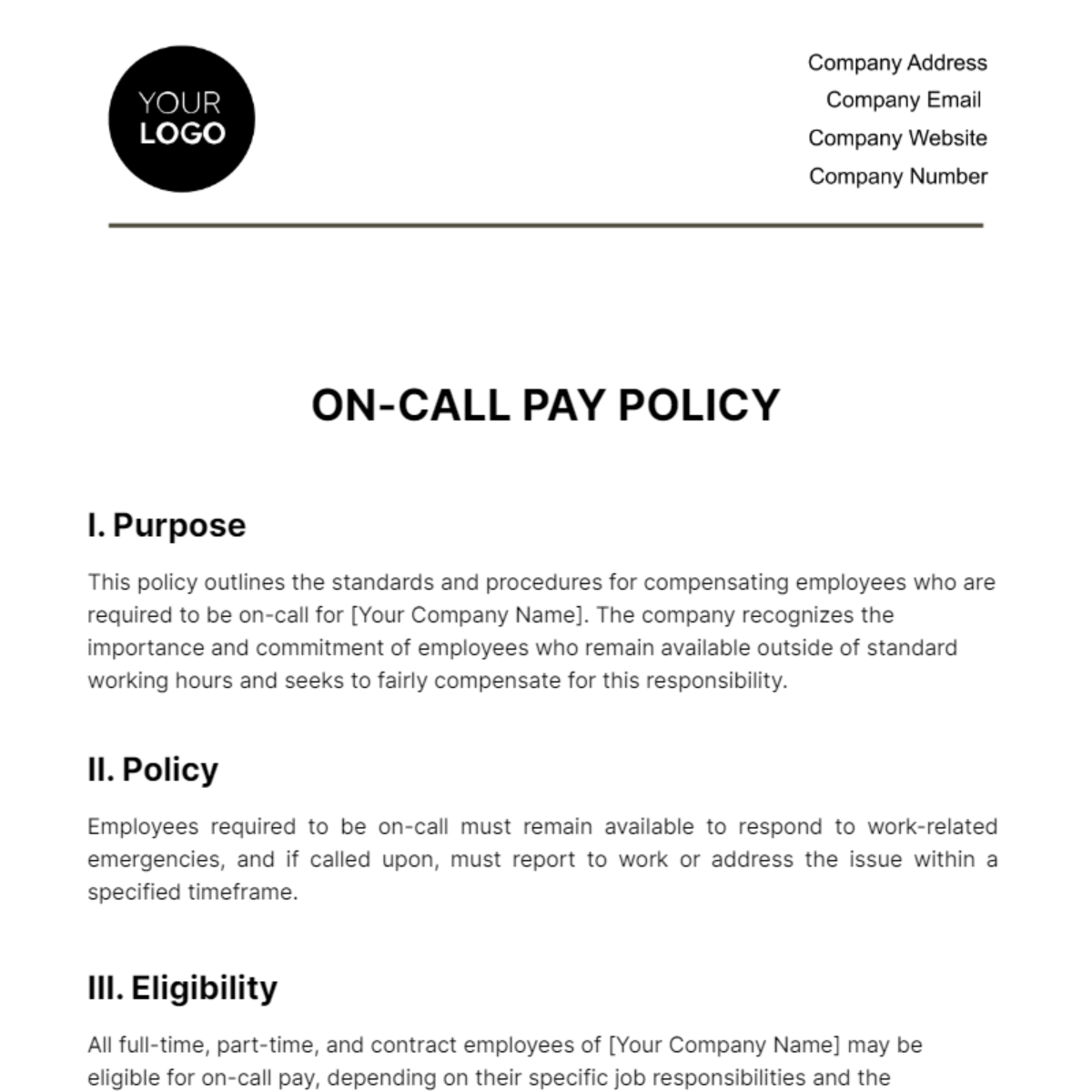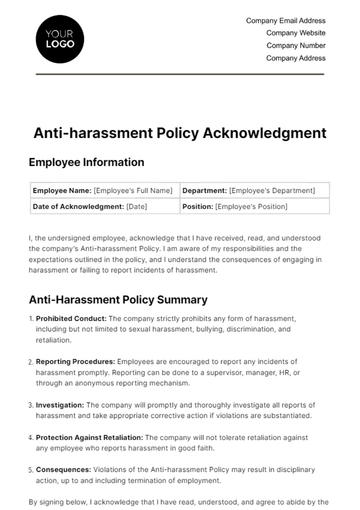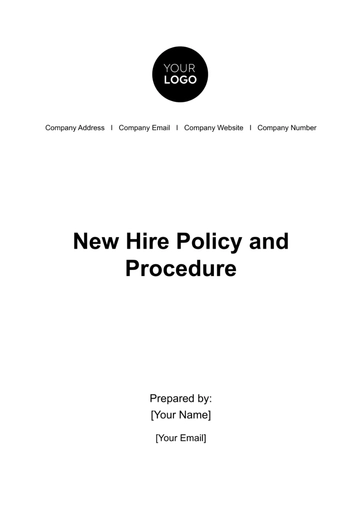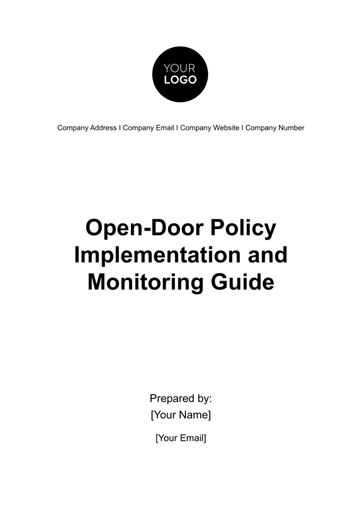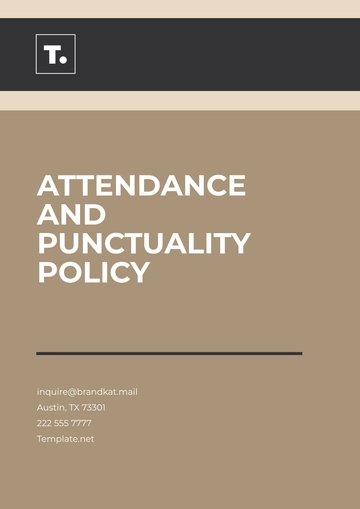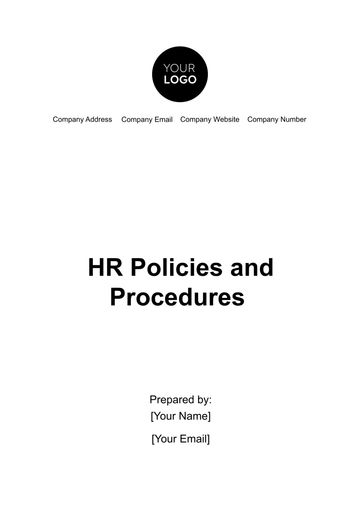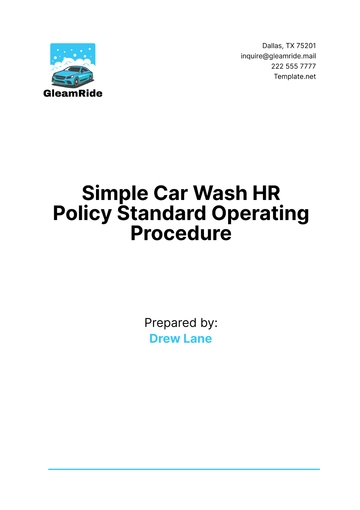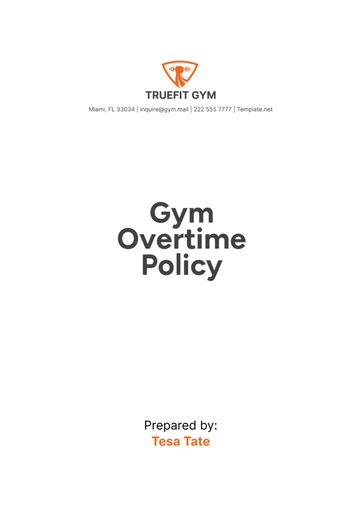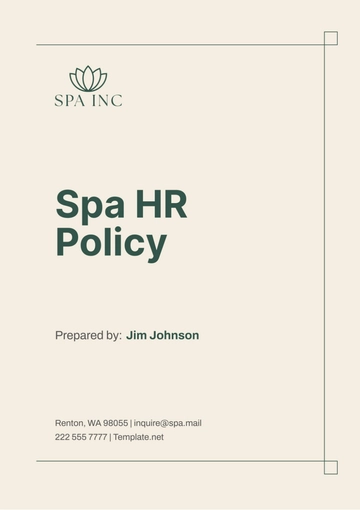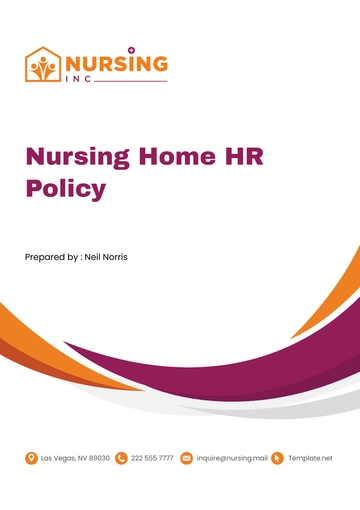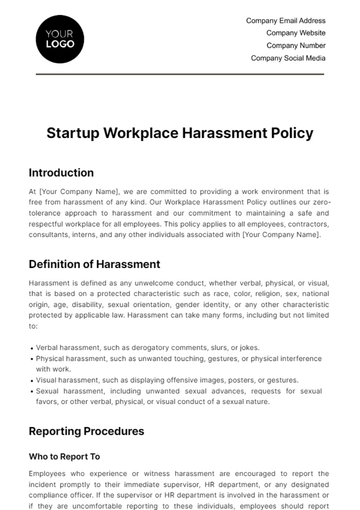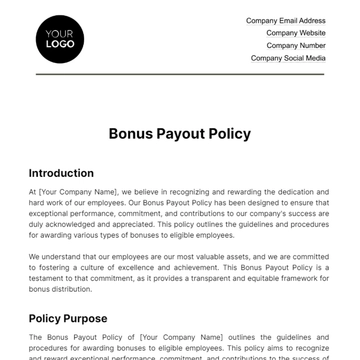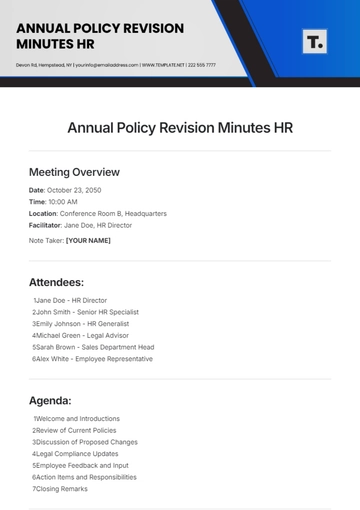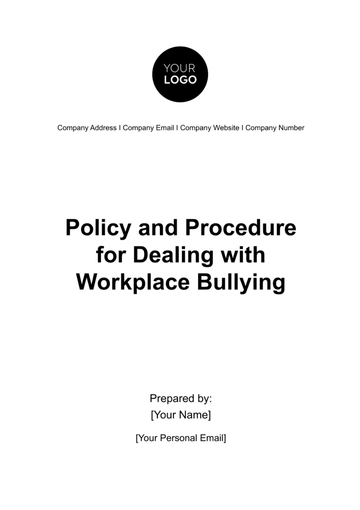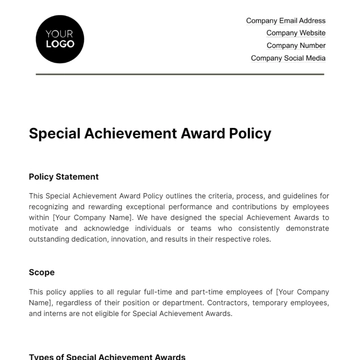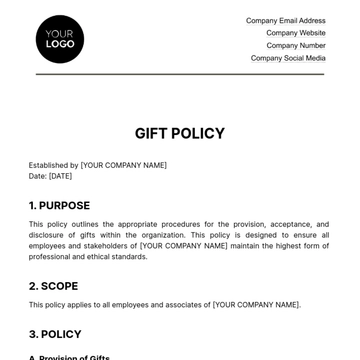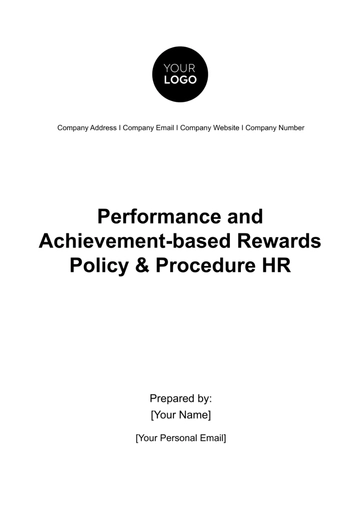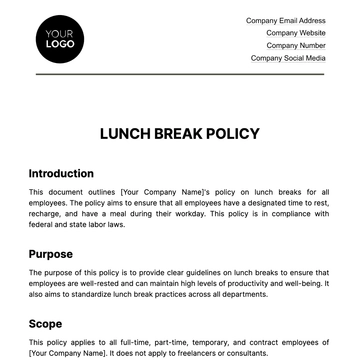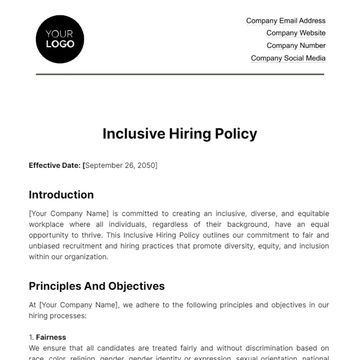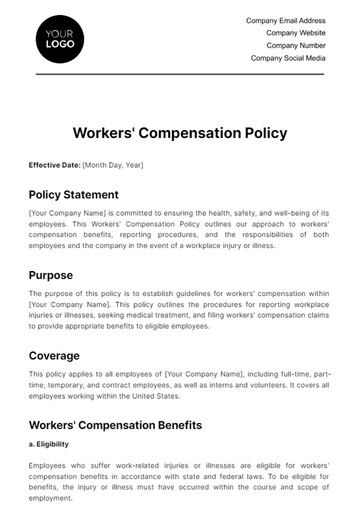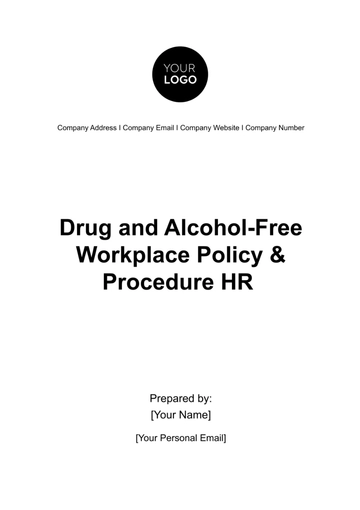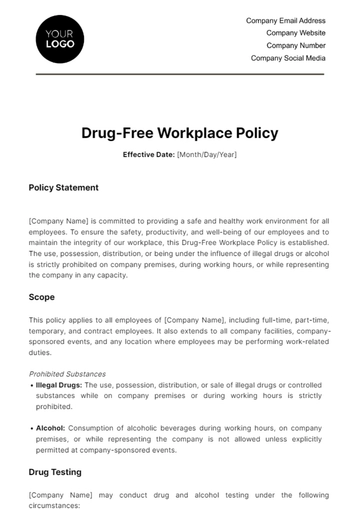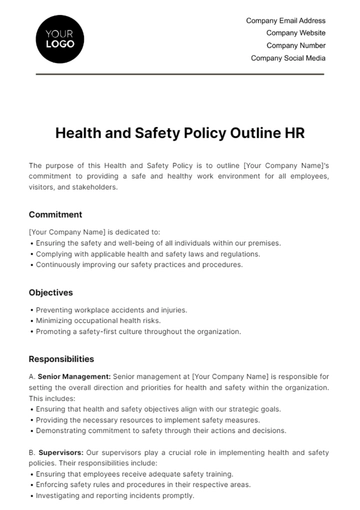ON-CALL PAY POLICY
I. Purpose
This policy outlines the standards and procedures for compensating employees who are required to be on-call for [Your Company Name]. The company recognizes the importance and commitment of employees who remain available outside of standard working hours and seeks to fairly compensate for this responsibility.
II. Policy
Employees required to be on-call must remain available to respond to work-related emergencies, and if called upon, must report to work or address the issue within a specified timeframe.
III. Eligibility
All full-time, part-time, and contract employees of [Your Company Name] may be eligible for on-call pay, depending on their specific job responsibilities and the requirements of their department. Eligibility for on-call pay begins from the moment an employee is officially placed on the on-call roster by their respective department and ends when they are officially rotated out or their on-call responsibilities are formally ceased. Several factors determine the eligibility of an employee for on-call compensation:
A. Positions that are critical to business continuity, system maintenance, and security, or have time-sensitive responsibilities are more likely to be eligible for on-call pay.
B. Employees who are expected to be on-call regularly or during peak business periods, such as quarterly financial closures or product launches, may be eligible.
C. If an employee’s timely intervention or action can prevent significant business disruption or financial loss, they are likely to be considered for on-call compensation.
IV. Compensation
On-call pay rates will be determined based on the position and responsibilities of the employee. The table below outlines the standard on-call pay rates:
Job Position | On-call Pay Rate per Hour |
IT Technician | $5 |
Systems Administrator | $7 |
Network Engineer | $8 |
Facility Manager | $6 |
Security Personnel | $4 |
For hours that an on-call employee is called into work or is actively working on a task, they will be paid their regular hourly wage or overtime, if applicable, in addition to the on-call pay.
V. Procedures
To ensure the smooth functioning of the on-call process and to standardize the expectations, the following procedural steps have been put in place. These procedures are intended to offer clear guidance to both managers and employees about the on-call responsibilities and response requirements.
A. Scheduling and Notification
a. Managers or supervisors are responsible for preparing and distributing the on-call schedule.
b. The schedule will be provided at least two weeks in advance, ensuring employees have ample time to make necessary personal arrangements.
c. Any changes to the on-call roster should be communicated immediately to affected employees and a revised schedule must be shared.
B. Communication Protocol
a. Employees on-call must ensure they are reachable via company-provided communication devices at all times during their assigned on-call period.
b. The company will maintain a directory of on-call personnel, accessible to key stakeholders, highlighting their contact details and the specific periods they are on-call.
C. Response Time
a. Employees must acknowledge any work-related call or emergency notification within 15 minutes of receipt.
b. The employee should be able to provide an initial assessment or commence work on the task within 1 hour unless otherwise specified by their department.
D. Documentation and Reporting
a. Employees are required to document any incidents or tasks they attend to during their on-call period.
b. A summary report, detailing the nature of the incident, actions taken, and any follow-up needed, should be submitted to their immediate supervisor by the end of the next working day.
A. Backup Support
a. In case an on-call employee is unable to attend to a task (due to unforeseen circumstances), a backup employee should be identified in the on-call roster.
b. The backup employee will be expected to step in and take over responsibilities to ensure continuous support.
VI. Exceptions
To maintain the integrity of the on-call pay policy and ensure consistent practices across the organization, strict adherence to the policy is expected. However, recognizing that unique circumstances can arise, the following procedures are established for handling deviations or exceptions:
A. Employees or managers who believe that an exception or deviation from this policy is warranted must submit a formal written request detailing the reason for the exception and the proposed alternative.
B. Upon receiving the request, the department director and Human Resources will jointly review the presented case. They may consult with relevant stakeholders or request additional information from the initiating party to fully understand the implications of the proposed exception.
C. No deviation or exception will be considered valid unless it has received formal written approval from both the department director and Human Resources. The approval will clearly state the nature and duration of the exception, as well as any conditions or stipulations tied to the approval.
D. All approved exceptions or deviations, along with their justifications, will be documented and stored securely by the Human Resources department. This ensures transparency, facilitates future reviews, and aids in maintaining consistency in decision-making.
E. Approved exceptions or deviations will be communicated to the affected parties, ensuring they are informed and understand the terms and conditions.
VII. Review
This policy will be reviewed biennially, with the next review date scheduled for January 01, 2053. Adjustments to pay rates will be considered based on inflation, industry standards, and company performance.
HR Templates @ Template.net
